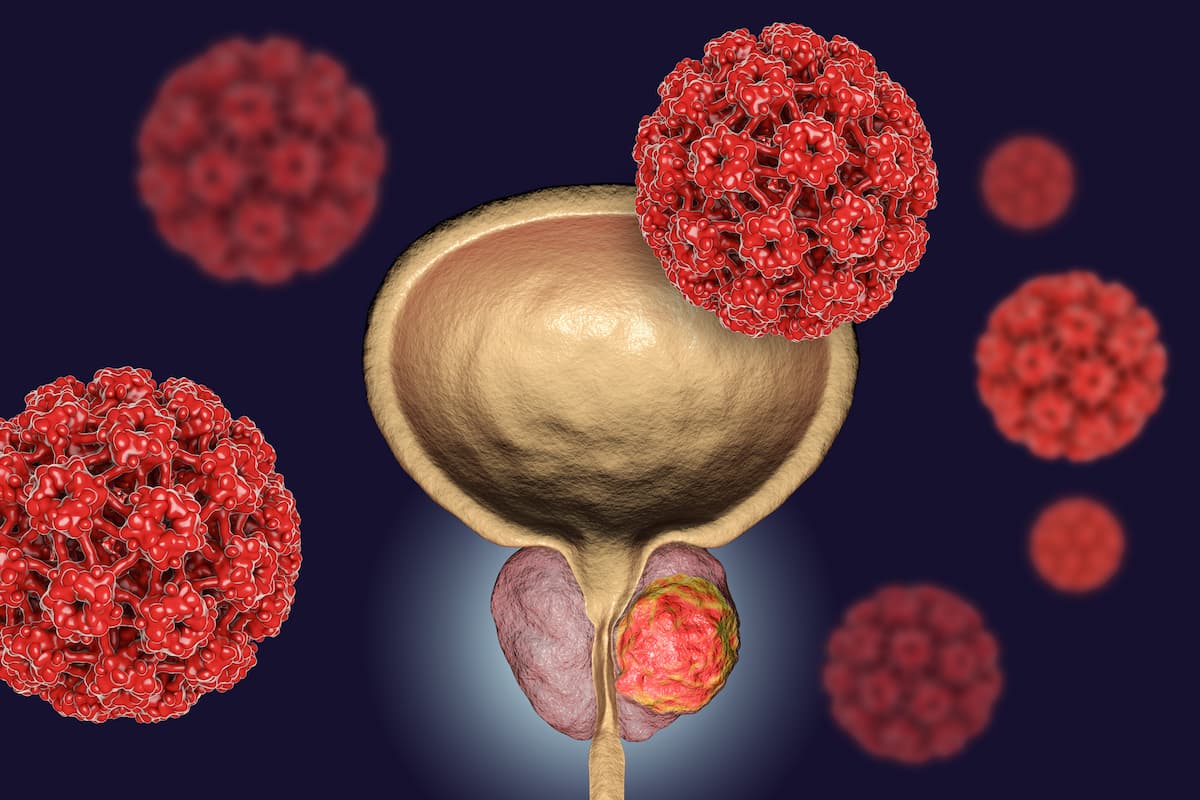
Approval of Olaparib Combo Impacts SOC in BRCA-Mutant Metastatic CRPC

Andrew J. Armstrong, MD, MSc, spoke about the recent approval of olaparib plus abiraterone acetate and prednisone in patients with BRCA-mutant metastatic castration-resistant prostate cancer.
In September 2022, prior to the approval of olaparib (Lynparza) plus abiraterone and prednisone, CancerNetwork® spoke with Andrew J. Armstrong, MD, MSc, regarding how the potential approval would impact the standard of care for metastatic castration-resistant prostate cancer (mCRPC) regardless of homologous recombination repair. With the current FDA approval, patients with BRCA-mutant mCRPC may now receive this treatment.1
Armstrong, professor of medicine, surgery, and pharmacology and cancer biology as well as a member of the Duke Cancer Institute at Duke University School of Medicine in Durham, North Carolina, also reviewed how this new treatment option should be considered in the first-line setting. The
For patients with a BRCA mutation, the radiographic progression-free survival (PFS) was not reached in the olaparib arm compared with 8 months (95% CI, 6-15) in the placebo arm (hazard ratio [HR], 0.24; 95% CI, 0.12-0.45). In patients who did not have a BRCA mutation, the radiographic PFS HR was 0.77 (95% CI, 0.63-0.96).
Transcript:
For many years the standard of care for first-line therapy in men with mCRPC has been potent AR [androgen receptor] inhibitors such as abiraterone or enzalutamide [Xtandi]. These were based on major advances and delays in both radiographic progression-free survival and overall survival in this setting.
To date, until this FDA approval, we’ve not seen any combination therapies add to this standard of care. The PROpel study is the first in unselected patients to extend the amount of time that men have before their cancer progresses or they die from mCRPC in the first-line setting. It did so by demonstrating benefits above and beyond abiraterone alone—a very active comparator—by delaying this amount of time that patients have by somewhere between 8 and 10 months.
References
- FDA approves olaparib with abiraterone and prednisone (prednisolone) for BRCA-mutated metastatic castration-resistant prostate cancer. News release. FDA. May 31, 2023. Accessed May 31, 2023. https://bit.ly/3C2UVzg
- Clark NW, Armstrong AJ, Thiery-Vuilemin A, et al. Abiraterone and olaparib for metastatic castration-resistant prostate cancer. N Engl J Med Evi. June 3, 2022;1(suppl 9).doi:10.1056/EVIDoa2200043
Newsletter
Stay up to date on recent advances in the multidisciplinary approach to cancer.





































